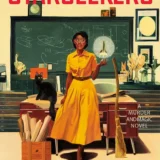And when we can’t have what we want….despite our best efforts to strategize for maximum gain? Then What? Oh, do we have excuses.
Pick one:
1. End up the underbidder? “It was too expensive for me anyway” (cognitive dissonance at work)
2. “I probably have one like that already, and just don’t know it” (Scarlett: I can’t think about that right now. If I do, I’ll go crazy. I’ll think about that tomorrow.)
3. “It wasn’t meant for me to own” (Karmic excuse)
4. “Another one will come along that will be even better than this one, then I’ll be happy I didn’t get this one” (Annie (singing): The sun will come up tomorrow, bet your bottom dollar, wait and see…)
5. “It wasn’t that good anyway” (always find flaws with the one you can’t have)
6. “I could have had it, if I really wanted it, I just didn’t want it badly enough.” (good choice, if you’re insecure and concerned about others’ disapproval)
7. “It wouldn’t be fair to other collectors to hog all the really good ones.” (Jane’s personal favorite! 😉
Ah, Excuses.
To keep our self-esteem intact and to feel we are in control of the situation. To distort the facts so we feel better. To help us accept our limitations, help us feel better about ourselves and help us take chances, since we know we can always come up with an excuse if we fail to acquire that which we crave to possess.
Because like all consumers, we need to reduce the stress that comes with feeling we’ve made the wrong decision. Because we are often not aware–and don’t want to be made aware–of what we are really doing. Because, what we’re doing is rationalizing acts of passion that are incomprehensible, misunderstood, and guilt-producing.
Every time I buy another SF/F painting, for example, I like to think that whoever bought the RED portrait (one of 4 colors) got their money’s worth, and that the underbidder wasn’t too distraught.

We feel the exhilaration that accompanies hunting – and winning – objects of desire and somehow manage the stress that comes from indecision, and the tension of the “hunt.” Because whatever compels our ardor, we also feel the exhilaration and joy that comes from “selecting, gathering, and keeping” objects of subjective value; objects that may have no special or commercial value, no particular usefulness, indeed – that may have no meaning, or appeal, to anyone in the world except us. And at the end of the day, that’s enough.
Or is it?
Is it worth wondering why only SOME of us spend our time and money this way?
Nah.










Currency is not one of the things that I collect.
I expect that some currency collectors enjoy decorating their walls with bills behind glass in a frame.
Me, I exchange currency for things that I collect, one of those things being art that hangs in frames on our walls.
Collecting is proof that, yes, you can buy happiness.